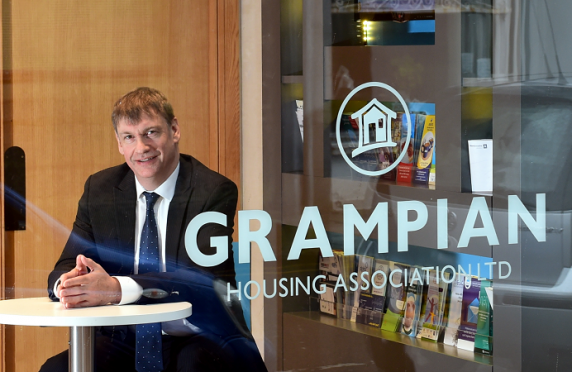It was the last Saturday in January, Dreich, like the weather was telling me something.
The stated aim of the day was community engagement and to explore the question: “How shall we support each other and our city to build a future – prosperous and successful – which makes a real difference to the everyday lives of all its citizens?”
But I had visions of finger pointing and endless negativity just like every public meeting I’ve been to.
I was pleasantly surprised. Conversations were good humoured and respectful. Yes, frustration and hurt did make the occasional cameo appearance but by lunchtime the sun had come out, figuratively and literally. Angela Scott, chief executive of Aberdeen City Council attended alone, without a coterie of councillors or senior officers. The more I encounter Angela, the more impressed I am. It was courageous and principled to support the event and make a very personal speech to launch it.
It’s worth noting that the city’s councillors were not invited, primarily because the focus was on how communities themselves could make a difference. It was not about blaming or banging on about the failings of others. When people feel they might have agency, they are being listened to, and trust those they are talking to, the tone changes. And it did. Open Space was used, a structured form of meeting where volunteers step forward to raise issues they feel strongly about and nominate a space and time to discuss it. The incinerator, business start-ups, why we should have a mayor, the state of the roads and pavements, support for the arts, the environment and why Torry is being treated as Aberdeen’s “sacrificial zone” were among the dozens suggested.
At the end everyone who wanted to say something got the chance, whether that was in writing or with the mic. All in all it was a kinder way for the city to explore its problems and aspirations and one I’d like to see as a regular event. Of course it only works if someone really does listen. We need both politicians and their communities to be willing to find a common way and talk. For years now communities in Aberdeen have felt excluded and ignored by councillors and their parties.
I’m not alone in feeling that local government is dysfunctional. It’s too big, in fact the biggest, least accountable local government in Europe. From the outside its party politics look childish and poisonous. For all that, I know what working in a council is like and it’s hard and changing things the worst. But consider this. The private sector has one reason to exist, to make money, or for some, to make money, nicely. The council has a hundred and one reasons to be, with added political “interference” and ever rising public expectations. Nothing is simple. No one likes it. Nothing it does is ever right (according to a straw poll of taxi drivers).
Behind this I also sense that councillors and senior staff make the mistake of feeling responsible for everything. Like all of us, few have the tools to properly understand what is facing them or to objectively decide what to do in the face of complex problems. Despite this, some jealously guard the limited power and “gate keeper” status they have and put up barriers to change and wider public participation.
We, the great unwashed of Aberdeen should take some responsibility for this. Why do we expect the impossible from individuals who are in truth no smarter, no better organised or visionary than us? As a society, we live with a lot of contradictions and one is our willingness to casually dump all responsibilities on the council and then curse and stamp when the city’s impossible complexity, its lack of super-human staff and its shrinking budgets lead to failure.
I’m not advocating Cameron’s Big Society here, the big state, properly organised, locally devolved, accountable and sustainably funded is a force for good. Look at the Nordic countries or most of Europe for proof. What I would like to see is a proper partnership between the people of Aberdeen and the body that administers its services. Right now it’s broken. That sounds so harsh and I don’t mean it to, but there is no trust and you can’t have collaboration without it. And collaboration is what we need. I may be naïve, but you could find that an open-handed and inclusive response by the council to the many environmental and political issues raised by this event allows both communities and council to move on, and start grappling with issues like the economy or enterprise, together. We will all benefit.
Neil Clapperton, Chief Executive, Grampian Housing Association
